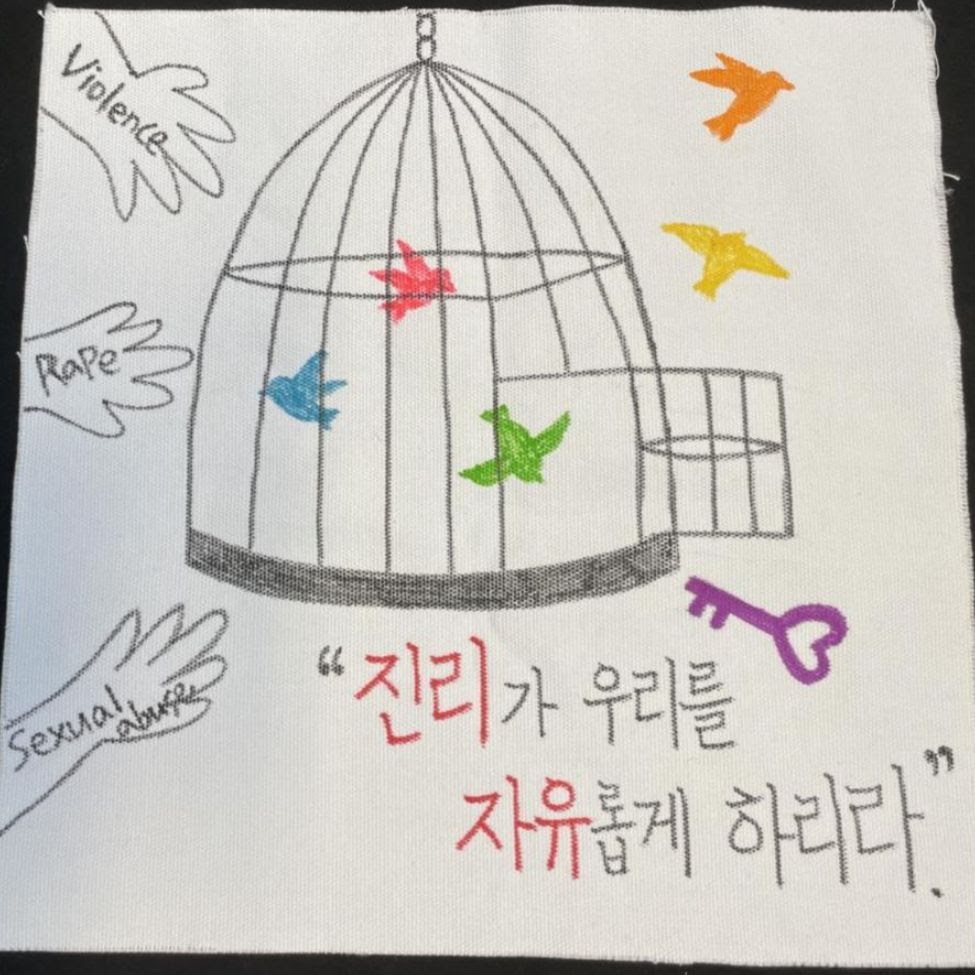Hanbeet Rhee, an ambassador for the WCC Thursdays in Black campaign for world free from rape and violence, worked with women’s groups in South Korea to craft panels for the tapestry, which will bring a strong visual symbol back to South Korea, Rhee said. One such group was Wumtda, which comprises 14 women ages 20-60 from different denominations and positions, including women pastors, theologians, theological students, and laypeople. As the group crafted panels, they talked about the realities the church women have faced simply because they are women. A second group is Nabi, which means “butterfly,” and which also has church women from diverse denominations who aim to create and grow a movement of life, justice, and peace. With 12 members ages 20-50—primarily pastors and seminary students—the group also promotes ecology education materials for the church children in Korea. In addition to panels, South Korean women are also sending an array of colorful prayer ribbons. “In South Korea, hanging a cloth on a string is a traditional way of expressing wishes and prayers,” explained Rhee, who has been working with YWCA Korea to not only craft prayer ribbons but to produce materials supporting the Thursdays in Black campaign. YWCA Korea shared badges, virtual backgrounds, and postcards with 52 local YWCAs, as well as other Christian organizations, and with the general public as well. “Local YWCAs have become very active with Thursdays in Black,” said Rhee. As the panels and prayer ribbons arrive at the WCC 11th Assembly, “it will give me the impression that we are not alone,” she said. “Sometimes when we are fighting against gender-based violence in Korea, we feel very lonely because we feel like we are stopped in our situation.” The tapestry, for Rhee and many others, will be a symbol of the kind of work women and men can do together to prevent gender-based violence. “It’s a sign that we have friends in the world who will be with us, who are already active in their society, and who will be our partners,” she said. While some parts of Korean society have worked to prevent gender-based violence and have made strides toward equality, the churches have a ways to go, Rhee said. “It’s a critical issue we’re facing in Korean churches,” she said, naming the lack of regulations and protection related to sexual harassment and discrimination against women applying for church leadership positions as two big challenges. “The society is changing here, but the church remains in past years,” she said. “They don’t want to make a big conversation about it.” Crafting the panels gave women an opportunity to express themselves not only through their artistry but to each other as they worked together. “It was a real opportunity to provide a safe space for everybody to speak about it,” she said. | 

No comments:
Post a Comment